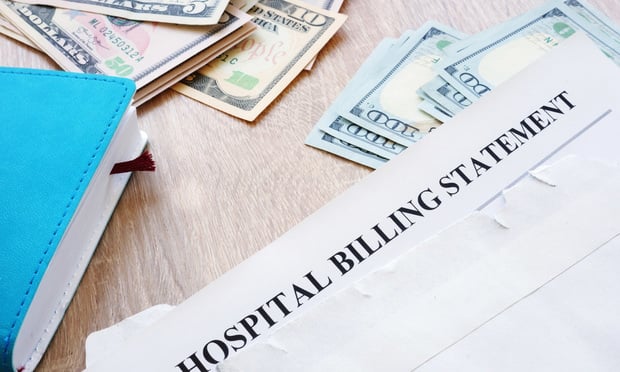 More than one-third of insured adults and half of uninsured adults said they had a medical bill problem or were paying off medical debt.
More than one-third of insured adults and half of uninsured adults said they had a medical bill problem or were paying off medical debt.
Although the pandemic may be starting to wind down, the health and financial repercussions still are being felt by many of the most vulnerable Americans.
Adults ages 19 to 64 who contracted the virus, lost income or lost their job-based health insurance coverage reported higher rates of problems with medical bills and debt than people not affected by the pandemic in these ways, a new Commonwealth Fund study found. People who lost income experienced medical bill problems at the highest rates, especially those who also tested positive or became sick with COVID-19 or lost coverage.
Recommended For You
Key findings include:
Black and Latinx/Hispanic adults were more likely to have medical bill problems and a loss of income during the pandemic.
- More than half of Black and nearly half of Latinx/Hispanic adults said they had medical bill problems and debt, compared to one-third of white adults.
- Overall, one-third of adults said their income fell during the pandemic, but Black, Latinx/Hispanic and low-income adults were particularly hard hit.
- 44% of Black adults and 45% Latinx/Hispanic adults reported a loss of income.
Insured and uninsured adults alike struggle to pay their medical bills, but those without coverage face greater challenges.
- More than one-third of insured adults and half of uninsured adults said they had a medical bill problem or were paying off medical debt.
- One-third of working-age adults with employer coverage reported medical bill or debt problems, as did nearly half of adults with individual and marketplace coverage.
Relatively few adults lost job-based health insurance coverage during the pandemic. However, many of those who did were left exposed to health care costs.
- Just 6% of working-age adults lost job-based coverage since the pandemic began. Of these individuals, 67% gained coverage elsewhere.
- Just over half of people who lost coverage through their job and did not get COBRA were without coverage for three months or less. About 30% did not gain insurance until four to 11 months later, and 16% were uninsured for longer than a year.
One in 10 working-age adults were uninsured during the first half of 2021. More people have gained insurance than lost it since the pandemic began. Federal efforts to help people maintain their Medicaid coverage, combined with state and federal efforts to encourage people to enroll in the ACA marketplaces and in Medicaid, have increased enrollment in both.
Medical debt leaves people with lingering financial problems.
- 35% said they had used up most or all their savings to pay their bills.
- 43% had received a lower credit rating as a result of their medical debt.
- More than one-quarter were unable to pay for basic necessities such as food, heat or rent.
"Although the survey indicates improvement in insurance coverage during the pandemic, it also shows that health insurance in America is not protective enough," said Sara Collins, Ph.D., lead author of the study. "The persistent coverage inadequacy and vulnerability among U.S. working-age adults is compromising their ability to get the care they need and leaving many with medical debt at a moment when they should be recovering after months of financial insecurity."
© 2025 ALM Global, LLC, All Rights Reserved. Request academic re-use from www.copyright.com. All other uses, submit a request to [email protected]. For more information visit Asset & Logo Licensing.








